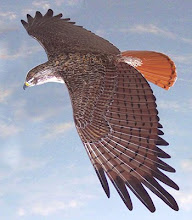We Have An Unknown Distance Yet To Run
Pat Metheny / Charlie Haden: Cinema Paradiso
We are now ready to start on our way down the Great Unknown.
Our boats, tied to a common stake, are chafing each other as they are tossed by the fretful river. They ride high and buoyant, for their loads are lighter than we could desire. We have but a month's rations remaining. The flour has been resifted through the mosquito-net sieve. The spoiled bacon has been dried, and the worst of it boiled. The few pounds of dried apples have been spread in the sun, and reshrunken to their normal bulk. The sugar has all melted and gone on its way down the river, but we have a large sack of coffee. The lightening of the boats has this advantage: they will ride the waves better, and we shall have but little to carry when we make a portage.
We are three-quarters of a mile in the depths of the earth, and the great river shrinks into insignificance as it dashes its angry waves against the walls and cliffs that rise to the world above. They are but puny ripples, and we but pygmies running up and down the sands, or lost among the boulders.
We have an unknown distance yet to run, an unknown river yet to explore. What falls there are, we know not. What rocks beset the channel, we know not. What walls rise over the river, we know not. Ah, well, we may conjecture many things. The men talk as cheerfully as ever. Jests are bandied about freely this morning, but to me the cheer is somber and the jests are ghastly.
With some eagerness, and some anxiety, and some misgiving, we enter the canyon below, and are carried along by the swift water through walls which rise from its very edge. They have the same structure as we noticed yesterday--tiers of irregular shelves below, and above these, steep slopes to the foot of marble cliffs. We run six miles in a little more than a half an hour, and emerge into a more open portion of the canyon, where high hills and ledges of rock intervene between the river and the distant walls. Just at the head of this open place the river runs across a dike; that is, a fissure in the rocks, open to depths below, has been filled with eruptive matter, and this, on cooling, was harder than the rocks through which the crevice was made, and, when these were washed away, the harder volcanic matter remained as a wall, and the river has cut a gateway through it several hundred feet high and as many wide. As it crosses the wall there is a fall below, and a bad rapid, filled with boulders of trap; so we stop to make a portage. Then we go on, gliding by hills and ledges, with distant walls in view; sweeping past sharp angles of rock; stopping at a few points to examine rapids, which we find can be run, until we have made another five miles, when we land for dinner.
Then we let down with lines over a long rapid and start again. Once more the walls close in, and we find ourselves in a narrow gorge, the water again filling the channel, and very swift. With great care and constant watchfulness, we proceed, making about four miles this afternoon, and camp in a cave.
--John Wesley Powell
journal entry for August 13, 1869







<< Home